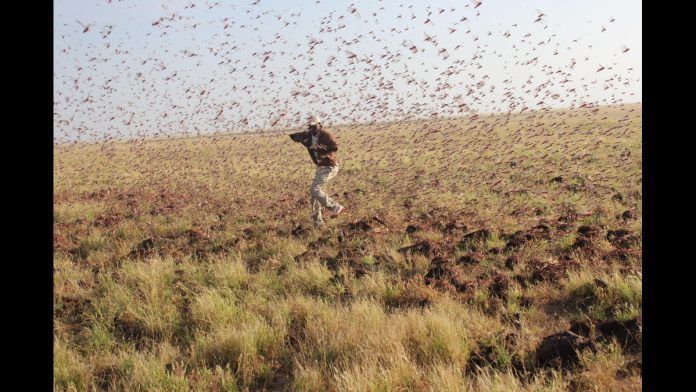News in Brief:
– Egypt faces a locust infestation spilling over from conflict-stricken Sudan, threatening agricultural devastation.
– Authorities are deploying specialised teams and technology to combat the swarms before they reach farmland, highlighting the global threat posed by these destructive pests.
Egypt is facing a growing threat from desert locust infestation migrating from neighboring Sudan, raising concerns about potential agricultural devastation. These swarms, capable of devouring massive amounts of crops in a single day, pose a significant challenge to the nation’s food security.
While locust infestations are not uncommon in Sudan, the current crisis is exacerbated by the ongoing conflict between the Sudanese Armed Forces and Rapid Support Forces. This turmoil has resulted in displacement, food insecurity, and limited resources for locust control, allowing the population to surge and spill over into Egypt.
Locust infestation: urgency and response
Egyptian authorities are taking swift action to combat the locust swarms before they reach agricultural areas. Specialised teams are actively conducting operations in the southern regions, utilising chemical pesticides and remote sensing technology to locate and eradicate egg pods, a news report says.
Elaborating, the Egyptian Head of Agricultural Pest Control Department, Ahmed Rizk, affirmed the governmentâs preparedness to use all means and methods necessary to confront these swarms before they enter any provinces.
Meantime, the Food and Agriculture Organization (FAO) categorises desert locusts as the most destructive migratory pest in the world. Outbreaks are often fueled by climate change, wind patterns, and rainfall, posing significant economic, environmental, and agricultural threats.



